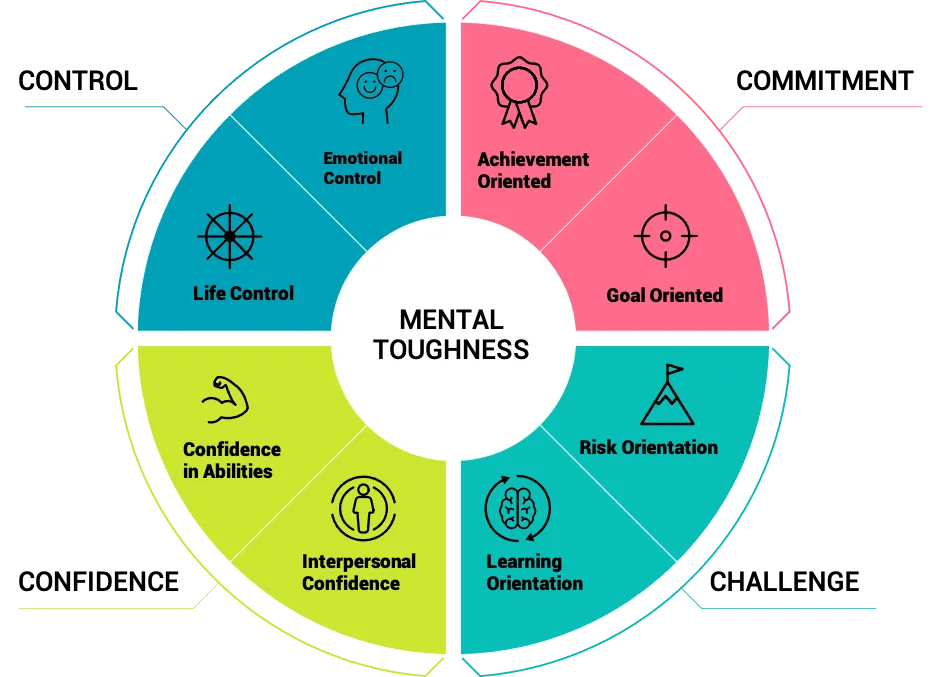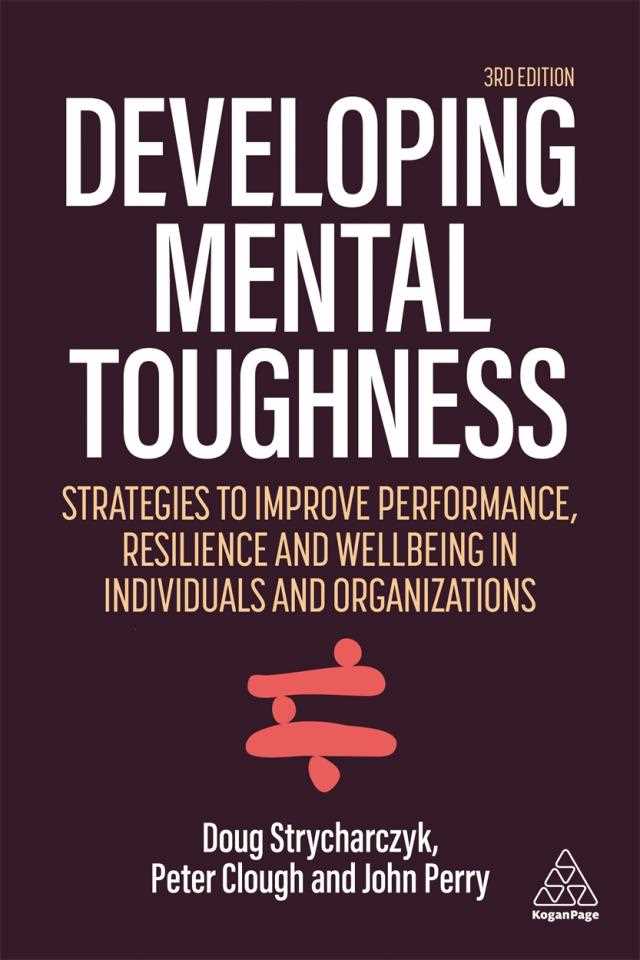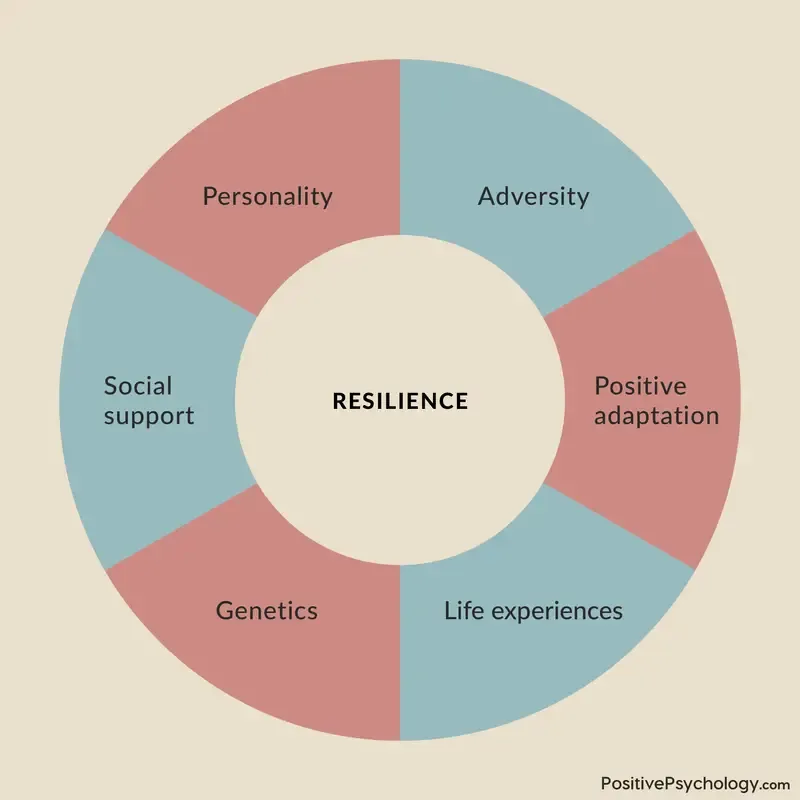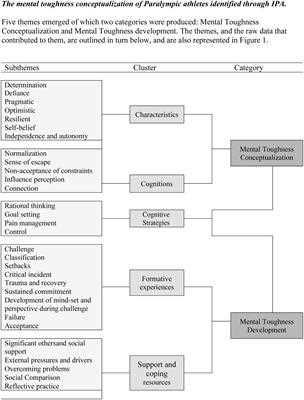In today’s fast-paced and demanding world, mental resilience and adaptability are crucial for maintaining well-being. Stress is a common experience that affects individuals in various aspects of their lives, including work, relationships, and personal development. Understanding the psychology behind stress and resilience is essential for effectively coping with challenges and promoting mental well-being.
Research in the field of resilience stress has shed light on the factors that contribute to building mental toughness. Resilience refers to the ability to bounce back from adversity and adapt to change. It involves developing a positive mindset, emotional intelligence, and effective coping strategies. By understanding the science behind resilience, individuals can better navigate through stressful situations and enhance their overall mental health.
Psychology research has shown that resilience is not an innate trait but can be developed and strengthened over time. It involves cultivating self-awareness, building a support network, and practicing self-care. By recognizing their strengths and weaknesses, individuals can identify areas for personal growth and develop strategies to overcome challenges.
Building mental toughness is a continuous process that requires effort and dedication. It involves developing a growth mindset, which emphasizes the belief that abilities and intelligence can be improved through hard work and perseverance. By embracing challenges and learning from failures, individuals can develop resilience and adaptability, ultimately leading to improved mental well-being.
Resilience Stress Research

Mental resilience is the ability to cope with and adapt to stress and adversity. It is an important concept in psychology and has been the subject of extensive research in recent years. Understanding the science behind building mental toughness can have significant implications for individuals’ mental health and well-being.
Stress is a common experience in everyday life, and its impact on mental health is well-documented. However, not everyone responds to stress in the same way. Some individuals are more resilient and able to bounce back from stressful situations, while others may struggle to cope. Research on resilience stress aims to understand the factors that contribute to this difference in adaptability.
Researchers have identified several factors that influence an individual’s resilience to stress. These include genetic predisposition, early life experiences, social support networks, and individual coping strategies. By studying these factors, researchers can gain insight into how to promote resilience and develop interventions to help individuals better cope with stress.
Resilience stress research also examines the impact of stress on physical health. Chronic stress has been linked to a range of health problems, including cardiovascular disease, immune system dysfunction, and mental health disorders. Understanding the mechanisms through which stress affects health can inform strategies for prevention and treatment.
Overall, resilience stress research is a vital area of study in psychology and has important implications for promoting mental health and well-being. By understanding the science behind building mental toughness and resilience, individuals can develop strategies to better cope with stress and adversity, leading to improved overall health and well-being.
Understanding the Science

In recent years, research on stress and mental resilience has gained significant attention in the fields of psychology and health. Scientists are striving to understand the science behind building mental toughness and enhancing adaptability in the face of challenges.
Stress is a common experience that affects individuals in various ways. It can be caused by external factors such as work pressure, relationship issues, or financial difficulties, as well as internal factors like self-doubt and negative thoughts. Understanding the impact of stress on mental health and developing effective coping strategies is crucial for maintaining overall well-being.
Researchers have found that resilience, which refers to the ability to bounce back from adversity, plays a vital role in managing stress. Resilient individuals are better equipped to adapt to difficult circumstances and maintain their mental well-being. They possess a set of cognitive and emotional skills that enable them to navigate challenges with greater ease.
The field of psychology has identified several factors that contribute to the development of resilience. These include positive self-beliefs, social support networks, problem-solving skills, and a sense of purpose. By understanding these factors, researchers can design interventions and strategies to enhance resilience and promote mental toughness.
One area of research that has gained particular attention is the study of neuroplasticity. This field explores how the brain can change and adapt in response to experiences and challenges. Understanding the mechanisms behind neuroplasticity can help individuals develop strategies to rewire their brains and build mental resilience.
Moreover, researchers are investigating the role of genetics and epigenetics in resilience. By studying the interplay between genes and the environment, scientists aim to uncover the biological factors that contribute to mental toughness. This knowledge can inform the development of personalized interventions and treatments for individuals struggling with stress and resilience.
Overall, the science behind building mental toughness and resilience is a multidisciplinary field that combines research from psychology, neuroscience, genetics, and other disciplines. By understanding the underlying mechanisms and factors that contribute to resilience, researchers can develop effective strategies to enhance mental well-being and promote adaptive coping mechanisms.
Exploring the Link between Resilience and Stress

Resilience, the ability to adapt and bounce back from difficult situations, is a key factor in maintaining mental well-being. Research in psychology has shown that individuals with higher levels of resilience are better equipped to cope with stress and maintain their mental health.
Stress, on the other hand, can have a detrimental impact on both physical and mental health. It can lead to a variety of negative outcomes, including anxiety, depression, and reduced overall well-being. Understanding the relationship between resilience and stress is crucial for developing effective strategies to promote mental toughness and improve overall health.
Several studies have explored the link between resilience and stress, and have found that individuals with higher levels of resilience tend to experience lower levels of stress. This suggests that resilience acts as a protective factor against the negative effects of stress.
One possible explanation for this relationship is that individuals with higher levels of resilience have better coping mechanisms in place to deal with stress. They may have a more positive outlook on life, engage in regular exercise and self-care activities, and have a strong support system. These factors can help individuals better manage stress and prevent it from becoming overwhelming.
Additionally, resilient individuals may possess greater emotional intelligence, allowing them to better regulate their emotions and respond to stress in a more adaptive manner. They may be more likely to seek social support, engage in problem-solving strategies, and practice relaxation techniques, all of which can help reduce stress levels.
Overall, the link between resilience and stress is a complex and multifaceted one. While resilience can act as a protective factor against the negative effects of stress, it is important to note that resilience is not a guarantee of immunity from stress. Developing resilience and effective coping mechanisms is an ongoing process that requires effort and self-reflection.
By understanding the relationship between resilience and stress, researchers and mental health professionals can develop targeted interventions to promote resilience and improve mental health outcomes. These interventions may include stress management techniques, mindfulness practices, and therapy to help individuals build their resilience and better cope with stressors.
Effects of Stress on Mental Health

Stress is a natural part of life and can have both positive and negative effects on mental health. While some stress can be motivating and help individuals meet challenges, chronic or excessive stress can have detrimental effects on well-being.
Research in psychology has shown that prolonged exposure to stress can lead to a range of mental health issues. High levels of stress can contribute to the development of anxiety disorders, depression, and other mood disorders. It can also exacerbate existing mental health conditions, making them more difficult to manage.
Coping with stress is an important aspect of maintaining mental health. Individuals with high levels of resilience and adaptability are better equipped to handle stress and bounce back from difficult situations. Resilience refers to the ability to recover from adversity and adapt to change, while adaptability is the capacity to adjust one’s behavior and emotions to fit new circumstances.
Building resilience and developing effective coping strategies can help individuals better manage stress and protect their mental health. This can include seeking support from friends, family, or mental health professionals, engaging in stress-reducing activities such as exercise or mindfulness practices, and practicing self-care.
It is important to recognize the impact of stress on mental health and take proactive steps to mitigate its effects. By understanding the science behind stress and resilience, individuals can improve their well-being and build mental toughness.
| Effects of Stress on Mental Health |
|---|
| – Development of anxiety disorders, depression, and other mood disorders |
| – Exacerbation of existing mental health conditions |
| – Difficulty in managing mental health |
| – Importance of resilience and adaptability in coping with stress |
| – Building resilience and developing effective coping strategies |
| – Seeking support from friends, family, or mental health professionals |
| – Engaging in stress-reducing activities |
| – Practicing self-care |
| – Mitigating the effects of stress on mental health |
| – Improving well-being and building mental toughness |
Building Mental Toughness

Mental toughness is a crucial aspect of resilience and well-being, particularly when it comes to managing stress and coping with adversity. Research in psychology has shown that individuals with high levels of mental toughness are better equipped to handle challenging situations and bounce back from setbacks.
Mental toughness involves the ability to remain focused, motivated, and determined in the face of difficulties. It also encompasses adaptability and the capacity to effectively regulate emotions and thoughts during stressful times. Building mental toughness requires practice and intentional effort.
One way to develop mental toughness is through stress exposure. By gradually exposing oneself to increasingly stressful situations, individuals can build resilience and enhance their ability to handle stress. This process, known as stress inoculation, involves systematically challenging oneself and gradually increasing the level of difficulty.
Another important factor in building mental toughness is adopting a growth mindset. This mindset involves believing that abilities and skills can be developed through hard work, perseverance, and learning from failures. Embracing a growth mindset allows individuals to view challenges as opportunities for growth and improvement.
Additionally, cultivating self-care practices and prioritizing mental well-being is crucial in building mental toughness. Engaging in activities such as exercise, meditation, and therapy can enhance resilience and provide individuals with the tools to better cope with stress.
It is important to note that building mental toughness is a personal journey and may vary from individual to individual. What works for one person may not work for another. It is essential to find strategies and approaches that resonate with one’s own values, strengths, and preferences.
In conclusion, building mental toughness is a valuable skill that can contribute to overall well-being and resilience. By developing adaptability, regulating emotions, and adopting a growth mindset, individuals can enhance their ability to cope with stress and overcome challenges. Prioritizing self-care and exploring different strategies can help individuals on their journey towards building mental toughness.
Strategies to Enhance Resilience

Resilience is a crucial aspect of mental well-being and can greatly impact overall health and coping with stress. Research in psychology has identified several strategies that can enhance resilience and promote adaptability in the face of adversity.
- Building a strong support network: Surrounding yourself with positive and supportive individuals can provide a valuable source of emotional support during challenging times. Engaging in regular social interactions and maintaining close relationships can help foster resilience.
- Practicing self-care: Taking care of your mental and physical health is essential for building resilience. Engaging in activities that promote relaxation and stress reduction, such as exercise, meditation, and hobbies, can enhance your ability to cope with stress.
- Cultivating a positive mindset: Developing a positive outlook and practicing optimism can contribute to resilience. Focusing on strengths, setting realistic goals, and reframing negative experiences can help build mental toughness and increase adaptability.
- Developing problem-solving skills: Enhancing problem-solving abilities can improve resilience by empowering individuals to actively address challenges. Learning effective problem-solving strategies, such as breaking down problems into manageable steps and seeking support when needed, can strengthen resilience.
- Building emotional intelligence: Emotional intelligence involves recognizing and managing emotions effectively. Developing emotional intelligence can enhance resilience by enabling individuals to navigate and cope with stressful situations more effectively.
- Practicing mindfulness: Mindfulness involves being present in the moment and accepting experiences without judgment. Incorporating mindfulness practices, such as meditation or mindful breathing, can increase resilience by reducing stress and enhancing self-awareness.
- Seeking professional help when needed: If stress or challenges become overwhelming, seeking support from a mental health professional can be beneficial. Therapy can provide individuals with the tools and resources to enhance resilience and improve overall well-being.
By incorporating these strategies into daily life, individuals can enhance their resilience and better cope with stress. Building mental toughness and adaptability can contribute to improved mental health and overall well-being.
The Role of Cognitive Behavioral Therapy

Cognitive Behavioral Therapy (CBT) plays a crucial role in improving the well-being and mental health of individuals. With extensive research in psychology, CBT has emerged as an effective therapeutic approach for enhancing resilience, adaptability, and coping skills.
CBT focuses on identifying and challenging negative thoughts and beliefs that contribute to stress and mental health issues. By teaching individuals to recognize and reframe these thoughts, CBT helps them develop healthier thinking patterns and improve their overall mental resilience.
Research has shown that CBT can be effective in treating various mental health conditions, including anxiety disorders, depression, and post-traumatic stress disorder. It equips individuals with practical tools and strategies to manage their emotions, build resilience, and enhance their overall well-being.
One key aspect of CBT is its emphasis on the connection between thoughts, emotions, and behaviors. By understanding how these three components interact, individuals can learn to modify their thoughts and behaviors to improve their mental health.
CBT also encourages individuals to engage in active problem-solving and develop effective coping mechanisms. It helps them identify and challenge unhelpful thinking patterns, replacing them with more positive and adaptive thoughts. This process promotes resilience and enables individuals to better cope with stress and adversity.
Overall, CBT plays a significant role in promoting mental well-being and building resilience. Its evidence-based approach, focusing on thoughts, emotions, and behaviors, makes it a valuable tool in the field of psychology. By equipping individuals with the skills to manage stress and enhance their mental adaptability, CBT empowers them to thrive in the face of challenges.
| Benefits of Cognitive Behavioral Therapy |
|---|
| Improves mental resilience |
| Enhances coping skills |
| Reduces symptoms of anxiety and depression |
| Develops practical tools for managing emotions |
| Promotes problem-solving and positive thinking |
| Builds overall well-being and adaptability |
Importance of Social Support in Building Resilience

In the field of psychology, resilience refers to an individual’s ability to cope with and adapt to stress and adversity. Research has shown that resilience plays a crucial role in maintaining mental well-being and reducing the negative effects of stress on both physical and mental health.
One important factor that contributes to the development of resilience is social support. Social support refers to the help and assistance that individuals receive from their social networks, such as family, friends, and community. It includes emotional support, practical assistance, and informational support.
Studies have consistently found that individuals with strong social support networks are more likely to exhibit higher levels of resilience. This is because social support provides individuals with a sense of belonging, acceptance, and validation, which in turn enhances their self-esteem and self-efficacy.
When faced with stress or adversity, individuals with strong social support are more likely to seek help and advice from their network. This helps them to gain different perspectives and access to resources that can aid in problem-solving and coping. Social support also serves as a buffer against the negative effects of stress, as it provides individuals with emotional comfort and reassurance.
Furthermore, social support can enhance an individual’s ability to regulate their emotions and manage stress. Through social interactions, individuals can receive feedback and guidance on effective coping strategies, learn from others’ experiences, and acquire new skills for managing stress.
Overall, social support plays a crucial role in building resilience by providing individuals with the necessary resources, emotional support, and coping strategies to navigate through difficult times. It fosters a sense of belonging and connectedness, which promotes mental well-being and reduces the impact of stress on an individual’s overall health.
In conclusion, the importance of social support in building resilience cannot be overstated. It is essential for individuals to cultivate and maintain strong social support networks to enhance their mental toughness and adaptability. By seeking support from others, individuals can strengthen their resilience and improve their overall well-being in the face of stress and adversity.
Resilience and Physical Health

Research has shown that resilience plays a crucial role in maintaining physical health and overall well-being. The ability to effectively manage stress and adapt to challenging situations is key to maintaining a healthy lifestyle.
When faced with stressful situations, individuals with high levels of resilience are more likely to employ effective coping strategies, such as seeking social support, engaging in physical activity, and practicing relaxation techniques. These strategies help to reduce the negative impact of stress on the body and promote better physical health.
Studies have also found that resilient individuals have lower rates of chronic diseases, such as heart disease and diabetes. This may be due to the fact that resilience is associated with healthier behaviors, such as regular exercise, proper nutrition, and adequate sleep.
Furthermore, resilience has been linked to better immune system functioning. Chronic stress can weaken the immune system, making individuals more susceptible to infections and illnesses. However, resilient individuals are better able to bounce back from stress and maintain a strong immune system, leading to better overall physical health.
In summary, resilience is not only important for mental health, but also plays a significant role in maintaining physical health. By effectively managing stress and adapting to challenging situations, resilient individuals are better able to promote their overall well-being and reduce the risk of chronic diseases.
Impact of Resilience on Physical Well-being

Research in the field of psychology has shown that resilience plays a crucial role in maintaining good physical health and well-being. Resilience can be defined as the ability to cope with stress and adversity and bounce back from difficult situations. It is a skill that can be developed and strengthened over time.
Stress is a common factor in our daily lives, and it can take a toll on our physical health. Chronic stress has been linked to numerous health problems, including heart disease, high blood pressure, and weakened immune system. However, individuals with high levels of resilience are better equipped to handle stress and its negative effects on the body.
Resilient individuals have a greater ability to adapt to stressful situations and find effective coping mechanisms. They are more likely to engage in healthy behaviors, such as regular exercise, balanced diet, and sufficient sleep, which are essential for maintaining physical well-being. Additionally, resilience is associated with lower levels of inflammation in the body, which is a key factor in many chronic diseases.
Furthermore, resilience can also impact the recovery process from physical illnesses or injuries. Research has shown that individuals with higher levels of resilience tend to have better outcomes and faster recovery rates. This may be due to their ability to stay motivated, maintain a positive mindset, and adhere to treatment plans.
In conclusion, resilience plays a significant role in promoting physical health and well-being. Developing resilience can help individuals better cope with stress, adapt to challenging situations, and maintain healthy behaviors. By enhancing resilience, individuals can improve their overall quality of life and reduce the risk of physical health problems.

I am Patrina de Silva, a psychologist and mental health blogger in Sri Lanka. After obtaining psychology degrees from the University of Colombo and Monash University, I returned home to work as a counselor while also starting the popular blog “Pressy but Happy” to provide advice on psychological issues. Over the past decade, my empathetic articles have made my blog a leading mental health resource in the country. In addition to writing, I maintain a private therapy practice, frequently volunteer counseling time, and conduct seminars, driven by my passion for destigmatizing mental illness and educating the public on the mind-body connection. I strive to be an influential voice in my field through my compassionate approach.
